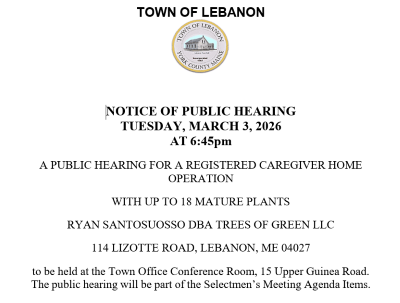
ROCHESTER - Andy Blais of Barrington has been practicing yoga for about six weeks now. He says it helps.
A combat veteran of Vietnam, Blais said the war and the profound and emotional impact it had on America still weighs heavily on the men who fought there.
Blais was just 19 when he got drafted into the army in 1966. Two years later he found himself in Hue (pronounced 'Way') in northern South Vietnam just 20 or so miles from the demilitarized zone that separated North Vietnam from South Vietnam.
It was the start of the biggest enemy campaign of the war so far - the Tet offensive of January 1968. Blais and other members of the 82nd airborne were deployed to Hue to provide flanking support for U.S. Marines who were inside the city trying to retake the northern provincial stronghold.
"It was the Marines' job to clean up the city," Blais said. "We took over security at bridges over a river into the city and other areas. Our job was to make contact with the enemy, disperse them, break them up and protect the city's flank."
Blais, an E4 Specialist who trained at Fort Bragg., N.C., was a rifleman and part of a two-battalion force of almost 500 men.
He said while he was stationed at Hue for about four months, meeting the enemy is mortal combat was pretty much a daily occurrence.
"The Tet offensive was their Battle of the Bulge," Blais said, referring to the famous battle of World War II. "Everywhere was a front line; they (the enemy) were everywhere."
He said the orders were almost always the same, more or less: find the enemy, engage the enemy.
"Almost daily we'd get a patrol," he said. "Once we'd secure an area, we'd go to another area, keep harassing the enemy, force them to make a stand or flee. Daily you're going to take some casualties.
"We didn't have such a big force to do a frontal, so it was like anti-guerrilla, keep penetrating," he added. "They (the VC and NVA) were doing the same thing, so we were in contact pretty much daily."
He said by being mostly on the outskirts of Hue, he had a chance to view up close and personal the misery of local peasantry.
"I began to feel so sorry for the peasants," he said. "It was all rice paddies, and all they want to do is get their rice and go home. You never saw a young man; they had to choose sides. The war destroyed their family structure.
"I began to think that (the propaganda) that we were there to save them (from the VC) was lost on me," he added. "The Tet offensive was all about big incursions into the cities, but the countryside was pretty much suffering."
Blais said that with this week's PBS broadcasting of Vietnam, the Ken Burns and Lynn Novic documentary, many Vietnam Veterans groups are girding for possible emotional repercussions to those who fought the war.
"I know I've heard of some veterans who don't like the fact that they're talking to the North Vietnamese soldiers and commanders," he said.
However, Blais, who went to last Thursday's preview of the documentary at the Rochester Opera House, thinks it's good to hear their perspective.
"What intrigued me was there was the VC side of the thing," he said after finishing his yoga class held on the third floor of the Rehabilitation Services at Frisbie Memorial Hospital at 95 South Main St. "It's very educational to hear some of their feelings, see that some of their problems we were facing, too.
"I mean even as NVA or VC, they were out there like I was, so I have respect for the other side as soldiers. We were doing it at the bidding of the political machinery. They, in many ways, were too. A lot of those guys didn't want to be there either. There was propaganda on both sides."
Blais noted that at the start of the war U.S. officials and politicians were saying the war was to stop the domino effect spread of communism in Southeast Asia and that North Vietnam was invading the south and creating chaos and subjugating the people.
"But the truth is the peasants didn't really care, nothing's going to change their lives," he said. "We were dropping napalm and that wasn't good for the countryside.
"After a while being over there you'd have your doubts, but you still do your mission; you're a soldier."
Blais feels the toughest lesson about Vietnam appears to be one the country never learned.
"After the war I used to find solace in thinking we'd learned from our mistakes being involved in that type of war, but when we went into Iraq, I got very upset," he said. "All that rationalization came into questions. I feel as though we didn't learn. Maybe we just love war."
After an hour of stretching, deep breathing, quieting his body and just letting go, Blais said the yoga may not be a panacea but it's a start.
"I'm not exactly getting into the lotus position," he quipped, "but if you leave here with a little less anxiety, it's worked."
The free yoga classes are for all veterans and funded by Frisbie Memorial Hospital. The class runs from 1-2 p.m. every Wednesday.
In addition the Manchester Vet Center is holding drop-in group support meetings for anyone viewing the 10-part documentary. For info on times, call 603.668.7060.













